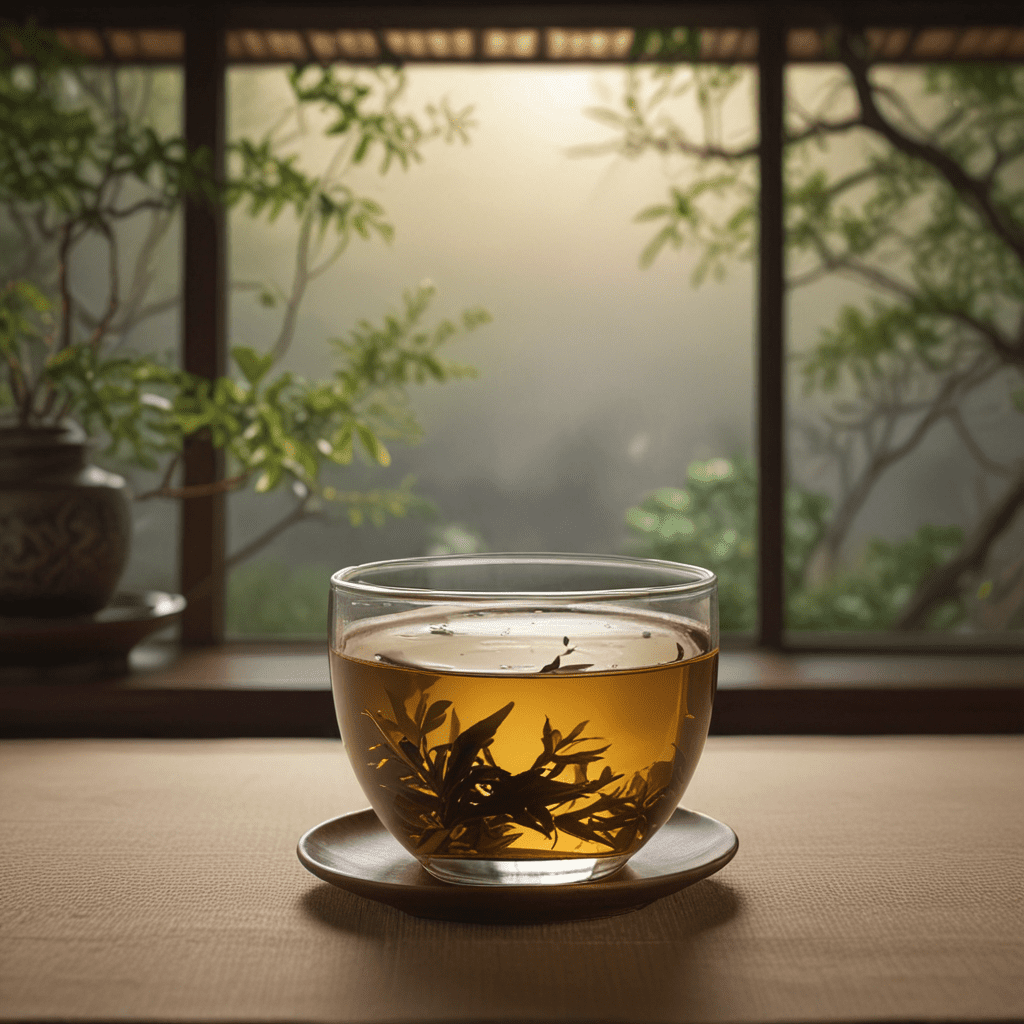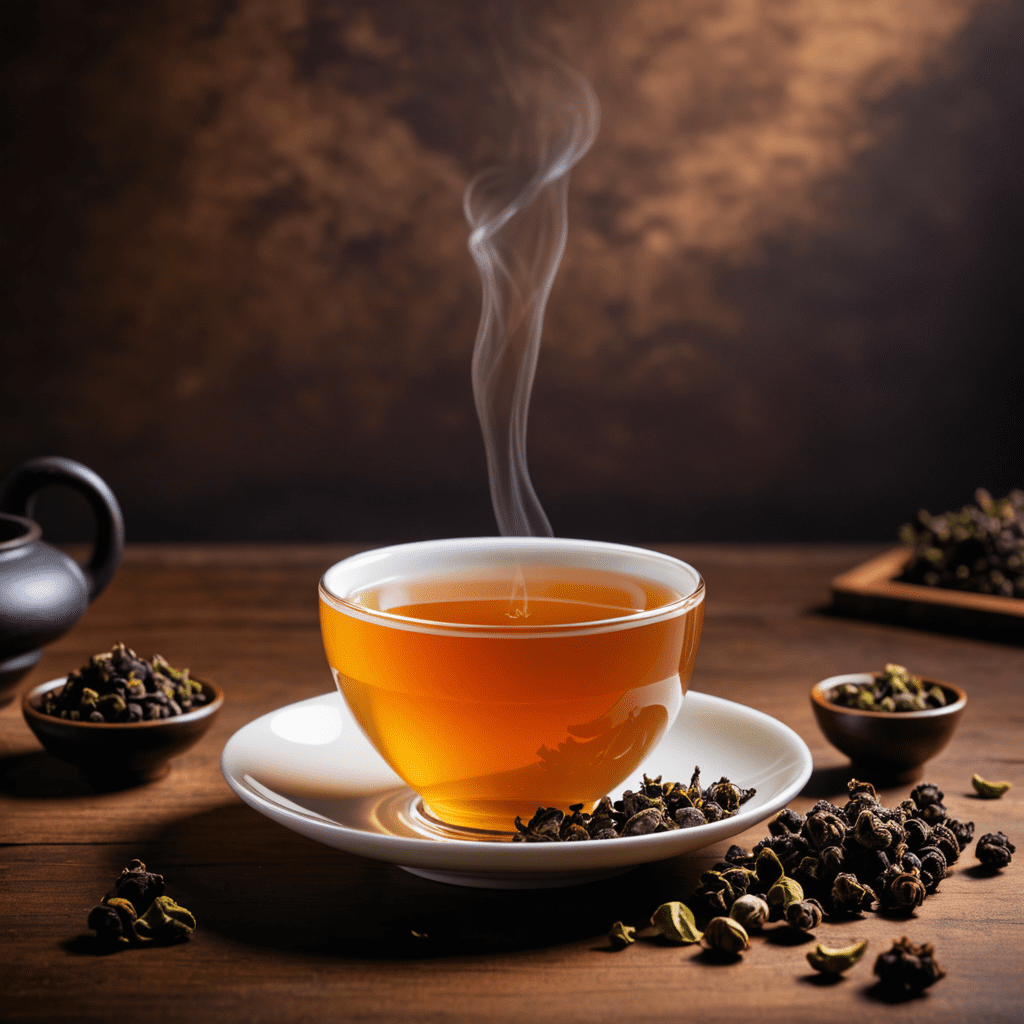
Introduction: The Intertwined Legacy of Tea and Buddhism
In the serene realm of Buddhist temples and monasteries, tea has played an integral role for centuries. The aromatic brew has been an indispensable companion to monks and practitioners, enriching their spiritual journeys and facilitating deep introspection. The fusion of tea culture and Buddhism has given rise to a unique tradition known as Chanoyu or the Japanese Tea Ceremony, which embodies the philosophies of mindfulness, simplicity, and harmony.
Historical Origins: Tea as a Buddhist Elixir
The origins of the tea-Buddhism connection can be traced back to the 6th century in China. It is believed that Bodhidharma, the founder of Zen Buddhism, traveled to China from India and brought tea with him. Legend has it that Bodhidharma fell asleep during a long meditation. To stay awake, he chewed on tea leaves, and thus discovered the stimulating effects of tea. Soon after, tea became the drink of choice for Buddhist monks during their rigorous meditation sessions.
The Role of Tea in Zen Monasteries
Tea played a prominent role in the daily lives of Zen monks. As monasteries were often located in remote areas, tea gardens became integral to monastery grounds, providing the monks with their own source of tea. Tea became an essential beverage during meditation practice, helping monks to maintain focus and alertness. It also aided in digestion during the prolonged fasting periods observed by monastic practitioners. Through the act of sharing tea, monks cultivated a spirit of togetherness and deepened their bonds of community.
The Tea Ceremony: A Ritual of Mindfulness and Enlightenment
Over time, the simple act of tea brewing evolved into an elaborate ritual known as Chanoyu. Originating in 16th century Japan, the Japanese Tea Ceremony embodies the core principles of Zen Buddhism. Every aspect of the ceremony, from the preparation of the tea to the way it is served, is imbued with meaning and intention. Participants engage in mindful movements, focus on the present moment, and strive to achieve a state of inner peace and enlightenment through the shared experience of tea.
The Philosophy of Teaism: The Path to Spiritual Awakening
Chanoyu gave rise to a philosophy known as Teaism, which emphasizes the way of tea as a transformative practice. Practitioners of Teaism believe that the act of preparing and tasting tea can lead to spiritual awakening. By cultivating a profound reverence for the beauty and purity of tea, practitioners seek to embody the virtues of humility, simplicity, and gratitude. Teaism is seen as a path to transcending the ego and accessing a higher state of being.
6. The Aesthetics of Tea: Simplicity, Harmony, and Naturalism
The Zen aesthetics of tea emphasizes simplicity, harmony, and naturalism. The tea ceremony takes place in a serene environment, often adorned with natural elements such as flowers, stones, and calligraphy. The teacups and other utensils are typically simple and understated, allowing the beauty of the tea itself to shine through. Practitioners of Teaism strive to create a sense of harmony and balance between themselves, the tea, and the surroundings.
7. Tea Gardens and Nature Retreats: Finding Serenity in the Landscape
Many Buddhist temples and monasteries feature beautiful tea gardens where monks and visitors can find respite and contemplation amidst nature. The gardens are designed to create a tranquil atmosphere, with meticulously manicured paths, ponds, and trees. Visitors can wander through the gardens, enjoy the fresh air, and appreciate the beauty of the natural world. Some monasteries also offer tea retreats, where guests can experience the tea ceremony and engage in meditation and mindfulness practices surrounded by nature's tranquility.
8. The Tea Masters: Preserving the Traditions
The traditions of tea culture have been passed down through generations of tea masters, who dedicate their lives to the art of tea. Tea masters undergo extensive training to acquire the knowledge, skills, and wisdom necessary to prepare and serve tea with utmost precision and care. They play a crucial role in preserving the traditions and techniques of the tea ceremony, ensuring its continuity for future generations. Tea masters are highly respected within the Buddhist community and beyond, and their teachings are sought after by those seeking to deepen their understanding of tea and its profound significance.
9. Contemporary Influences: The Global Spread of Zen Tea Culture
In recent decades, Zen tea culture has gained worldwide popularity, inspiring tea enthusiasts around the globe to explore its unique philosophies and rituals. Tea ceremonies are now practiced in many countries outside of Asia, and tea gardens have become popular destinations for those seeking a peaceful retreat. The global spread of Zen tea culture has fostered a deeper appreciation for the multifaceted role that tea has played in Buddhism, and has contributed to a growing awareness of mindfulness and well-being.
10. Conclusion: The Enduring Legacy of Tea in Buddhism
The intertwined legacy of tea and Buddhism has shaped a rich and profound tradition that has endured for centuries. Through its role in monastic life, the development of the tea ceremony, and the philosophy of Teaism, tea has facilitated spiritual awakening, fostered mindfulness, and promoted harmony and well-being. As the global popularity of Zen tea culture continues to expand, the enduring legacy of tea in Buddhism will continue to inspire future generations to seek enlightenment and cultivate a deep connection to the present moment through the simple yet profound act of sharing a cup of tea.
FAQ
What is the role of tea in Zen Buddhism?
Tea has played an essential role in Zen Buddhism for centuries, aiding in meditation practice, promoting mindfulness, and fostering a sense of community among monks.
What is the significance of the Japanese Tea Ceremony?
The Japanese Tea Ceremony (Chanoyu) is an elaborate ritual that embodies the core principles of Zen Buddhism, emphasizing the importance of mindfulness, simplicity, and harmony.
What is Teaism?
Teaism is a philosophy that emphasizes the way of tea as a transformative practice, promoting the virtues of humility, simplicity, and gratitude, and leading to spiritual awakening.
How has Zen tea culture influenced the world?
In recent decades, Zen tea culture has gained global popularity, inspiring tea enthusiasts around the globe to explore its unique philosophies and rituals, leading to a deeper appreciation for mindfulness and well-being.
Where can I experience Zen tea culture today?
Zen tea ceremonies and retreats are practiced in many countries outside of Asia, including tea gardens and Buddhist temples, offering a unique and immersive way to experience this profound tradition.

